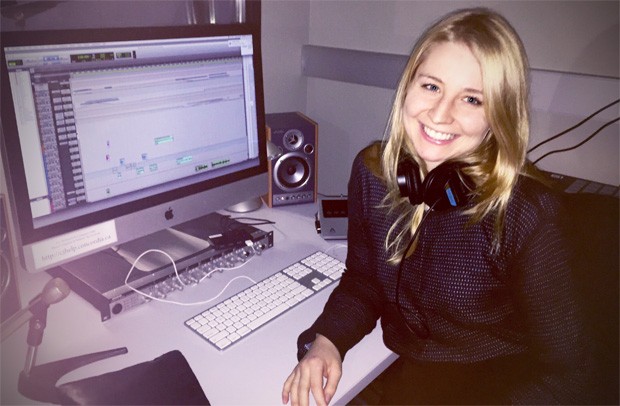Perceiving disability
 “It was really important to share my research on disability with people outside academia.”
“It was really important to share my research on disability with people outside academia.”
These days, academic research doesn’t just mean writing and reading — it also includes downloading and listening, thanks to scholars like Michelle Macklem, an MA student in the Department of Communication Studies who has turned her thesis into a podcast.
In Adaptive — a six-part podcast series about the interaction between human ability and technology — she investigates how our perceptions of disability are shaped. The podcast features in-depth interviews with researchers, designers and users of technologies that are often associated with disability.
Macklem, who has a background in community radio, initially decided to turn her thesis into a podcast after becoming involved with the Critical Disability Studies Working Group, part of Concordia’s Milieux Institute for Art, Culture and Technology.
“In a sense, the podcast was very much attached to my thesis ideas from the beginning” she says. “After hearing stories from people in disability communities and doing research on disability, it made sense to pursue a narrative audio work that included interviews and personal stories.”
For Macklem, sharing her research through a podcast has been about making her work accessible to more individuals.
“I found that my research on disability — and in particular, how we perceive and label people based on the technologies they use — was so interesting and engaging that it was really important to share with people outside academia,” she says. “The format inherently lends itself to personal stories.”
Episode 1, “Investigating Ability,” is already available for download. It questions why we define certain tools like canes or hearing aids as so-called assistive technologies, while tools like eyeglasses have become highly normalized and a part of the design and fashion industry.
Episode 2 will air on April 5, and looks at why and how disabled people must make adaptations through technology to access the built environment.
Future episodes will be available for download every two weeks, and will touch on similar topics, while taking different angles on the relationship between tech and ability.
If you can’t wait to listen to more of Macklem’s work, her podcast production skills can also be heard on another new podcast, Older Women Live — a series on social justice, civil rights, gender activism and much more, all seen from the perspective of older women.
Partners in research: The Adaptive podcast series is a part of a Social Sciences and Humanities Research Council of Canada-funded research-creation thesis for Michelle Macklem’s MA in Media Studies.
Download the latest episode of Michelle Macklem’s podcast Adaptive from iTunes.




